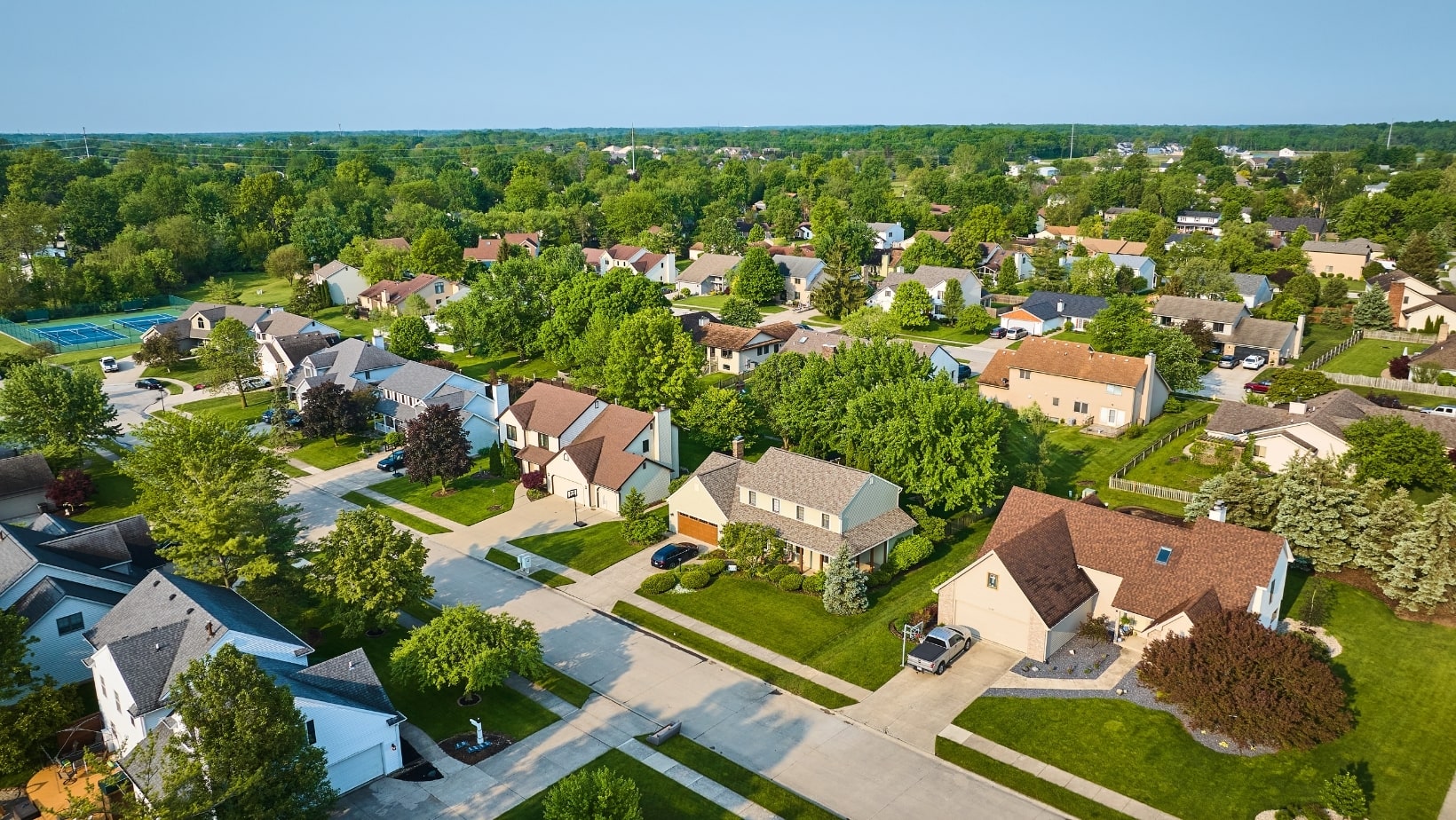Did you know that nearly 70% of homeowners associations (HOAs) don’t have enough reserves to cover sudden, hefty repair bills? This surprising and somewhat alarming fact highlights a common struggle that hits close to home for many.
So, what’s the deal with HOA reserve funds? Simply put, they’re the community’s safety net, a stash of money set aside for future repairs and unexpected expenses. Having enough reserve funds is essential to keep your community running smoothly.
But how much exactly should you keep in reserves? The general HOA reserves rule of thumb is to aim for enough to cover at least 70% of anticipated major expenses over the next 30 years.
This article will provide a clear guide for HOAs on the importance of homeowners association reserves. We’ll explain everything from why they matter to figuring out the right amount to set aside for a reserve fund.

What Exactly Are HOA Reserve Funds?
Alright, let’s get straight into it: what is an HOA reserve fund? Think of HOA reserves as a savings account that your association maintains to cover big-ticket items.
The main goal is to have money ready for large projects so the community doesn’t face a financial crisis when sudden, large expenses pop up.
Now, don’t get it mixed up with an operating fund; let’s clear up the difference between operational funds and reserve funds:
Operating Funds vs. Reserve Funds
Operational funds are the management fees to handle day-to-day expenses in the community. An operating budget covers everyday costs like mowing the lawn, paying for electricity, and recurring minor fixes.
Reserve funds, on the other hand, are long-term savings for those big, less frequent expenses. It’s like the difference between your monthly grocery budget and saving up for a new car.
So, what kind of expenses are covered by HOA reserve funds? Let’s have a look at some common examples.
What Costs Does a Reserve Fund Cover?
The beauty of homeowners association reserve funds lies in their foresight. They cover substantial costs that you don’t face regularly but know are coming, such as:
- Replacement Costs: Let’s say the roof of a community building needs replacing. When the lifespan of anything in a shared property ends, a reserve fund ensures there’s enough money to replace it without delay.
- Painting: Reserve funding helps with regular repainting to keep the community looking appealing.
- Major Repair Projects: From fixing roads to replacing aging plumbing systems, they are all covered by reserve funds.
- Capital Improvements: This includes major upgrades like landscaping projects, the addition of a new community park, or a new HVAC system.
Why Is It Important To Keep a Sufficient Reserve Fund?
You know that scorching summer heat? Imagine wanting to take a refreshing dip in your community pool only to find it all green and moldy. You then decide to drive back home, but the roads are full of potholes!
These issues aren’t just eyesores; they are the result of an HOA that didn’t prioritize keeping ample money in its reserve account.
Here’s why having sufficient reserves is crucial for a homeowners association:
Consequences of Inadequate HOA Reserves
1. More Frequent Special Assessments
So, an unexpected repair is needed, but not enough money is set aside to cover the cost. What now? When an HOA has underfunded reserves, it might have to hit homeowners with a sudden special assessment to make up for the shortfall.
Not fun, right? It can get really stressful for homeowners.
2. Increased Monthly Dues
When an HOA underestimates future expenses, another way to compensate for the lack of money is to increase HOA fees. This fee hike can leave homeowners feeling financially drained.
It’s like a slow, creeping tide that eventually overwhelms the shore; the financial burden can even drive some people away from the community.
3. Decreased Property Values
Protecting property values is vital for any HOA, but an insufficient reserve fund can make it challenging. When HOA reserve funds are low, routine maintenance gets neglected.
Cracked sidewalks, malfunctioning lights, and a pool that’s more algae than water — no one wants to live in such a neighborhood. As a result, the worth of the properties starts to drop.

How Adequate HOA Reserves Save the Day — The Benefits
1. Preventing Financial Crises
With a well-planned and healthy reserve fund, everything keeps running smoothly, and there is no financial chaos. When emergencies arise, the association doesn’t have to scramble for funds.
Repairs are handled swiftly, and homeowners are not subject to sudden special assessments. This keeps everyone calm and stable.
2. Ensuring Smooth Operation and Maintenance of Community Assets
From playgrounds to clubhouses, every shared asset needs upkeep on a regular basis. The result? Constant maintenance expenses for HOAs.
Adequate reserves help the associations to maintain the community in a timely and efficient manner, preserving its charm and functionality.
3. Enhancing Property Values
A well-kept community is a magnet for buyers. Potential homeowners are willing to pay a premium for a neighborhood where everything looks pristine and well-cared for.
HOA reserve funds protect your property’s value as people see the care and investment put into maintaining the community.
4. Building Trust Among Homeowners
When homeowners see their dues being used wisely and effectively to maintain and improve the community, it builds trust. People feel confident that their investments are protected.
They know their HOA is forward-thinking and responsible in managing reserve funds. This trust fosters a positive atmosphere where homeowners cooperate to navigate challenges together.
What Affects Reserve Amount Requirements
When it comes to figuring out how much an HOA should keep in reserves, there are several things to consider. These elements can significantly impact the necessary reserve amount to keep everything in perfect order without unexpected financial surprises.
Here’s a run-down on a few of the many factors that influence the ideal HOA reserve fund amount:
Age and Size of the Community
Think of it this way: the older the community, the more wear and tear on everything from roads to roofs. Just like an antique car requires TLC, older communities also need more funds to repair and restore aging facilities.
Plus, larger communities have more common areas meaning more space that needs upkeep. So, if your community is on the bigger or older side, you’re going to need a heftier reserve fund.
On the flip side, the newer communities might not need as much for repairs initially, but as they grow, so will their maintenance needs.
Type and Number of Amenities
Think about all the fun things in your community – the pool where kids splash around, the gym where neighbors work out, or the clubhouse that hosts gatherings and parties.
All these amenities are fantastic for boosting property values and community enjoyment. They make life richer, but they also come with a price tag.
Pools need regular cleaning and chemical treatments, clubhouses might require periodic renovations, and gyms need new equipment every so often. The more amenities your community offers, the more funds you’ll need to set aside to keep them in top shape.
Geographic Location and Climate Impact
Where your community is located also plays a huge role in maintenance costs. The climate of your area can significantly affect how much upkeep is needed and, consequently, how much money should be set aside in a reserve fund.
In a warm, coastal area, saltwater can corrode buildings and amenities faster, requiring more frequent repairs. Plus, landscaping might need constant attention to keep it lush.
Conversely, in colder climates, snow removal, heating systems, and freeze-thaw cycles can wreak havoc on roads and buildings. It’s all about preparing for different seasons – each comes with its own set of challenges and proper funding requirements.
Legal Requirements and State Laws
Finally, there’s the legal landscape to consider. Different states have different rules about how much money an HOA must keep in its reserve fund.
Some states are stricter than others, mandating a specific minimum amount that must be kept aside in the HOA reserve account. They might also require regular updates to reserve studies.
It’s like playing an outdoor game with a unique set of rules that you have to follow to keep everyone safe and happy.
Homeowners associations should know and adhere to these laws to ensure they are compliant and have enough funds to cover unforeseen expenses.

The Rule of Thumb for Keeping HOA Reserve Funds
So, how much should an HOA keep in reserve funds? The best practice is to set aside almost three-quarters of the annual budget. The general golden rule suggests that an HOA should have reserves at least 70% of the total cost of future repairs and replacements.
Why 70%, you ask? Well, it’s all about balance. This target is commonly recommended because it ensures you’re prepared for future expenses without making homeowners feel like they’re being squeezed for every penny through a special assessment.
It’s a happy medium – you’re not over-saving, but you’re not under-saving either. Think of it as the Goldilocks principle for your HOA finances.
The Concept of ‘Percent Funded’
Now, let’s talk about the percent funded. This term might sound a bit technical, but it’s pretty straightforward. Percent funded is a fancy way of saying how ready your HOA is for upcoming repairs and replacements.
It’s a crucial stat to measure stability and can make your neighborhood more appealing to potential residents. The higher the percentage, the better prepared you are for sudden expenses. It’s like having a well-stocked emergency fund for your home.
If your HOA reserve fund is at 70% or above, you can breathe easy knowing you’re in good shape. Below that, and you might need to start planning how to beef up those reserves.
Conducting a Reserve Study
So, how do you get all this crucial information? Through a reserve study!
Here’s a quick low-down on what it involves and why it’s so important:
- What is a Reserve Study?An HOA reserve study is essentially a thorough check-up of your community’s physical assets and their expected lifespans. Professionals come in to assess everything from the pool to the pavement, giving you a clear picture of what’s needed and when.It’s like getting a detailed roadmap of your HOA’s future maintenance needs.
- How Often to Conduct Reserve Studies?Regular reserve studies are super important. Ideally, you should conduct them every three to five years. This keeps your HOA reserve funding plan accurate and up-to-date, reflecting any changes in your community’s needs or financial situation.Regular updates mean you’re always on top of your game and can make informed decisions to adapt without guesswork.
- How Many Years Should an HOA Reserve Study Cover?It should be based on at least 20, if not 30 years. Imagine having a crystal ball that lets you see three decades into the future. That’s basically what a 30-year reserve study does.By looking far ahead, you can avoid those panic moments when something big needs fixing, but the cost is beyond the budget. It’s all about foresight and planning ahead, so you’re never caught off guard.

Final Thoughts
Alright, so bringing it all together, how much should an HOA have in reserves? 70% of anticipated expenses for the upcoming 30 years is generally a sweet spot for an HOA reserve account. It’s a solid amount that keeps you prepared without overdoing it.
If you haven’t started planning and budgeting for your reserves yet, don’t worry—it’s never too late to get on track.
Here are a few quick tips for HOA board members on managing reserve funds:
- Conduct a reserve study to assess the financial health of your HOA.
- Create a detailed budget that includes contributions to your HOA reserve fund.
- Monitor your reserve fund and adjust as needed to meet your long-term goals.
So, ready to dive in? Start your reserve study today! Check out our recommendation for one of the top reserve study providers to get started.
For personalized assistance, contact our financial consultants specializing in HOAs. They’re here to help you secure a bright future for your community!



